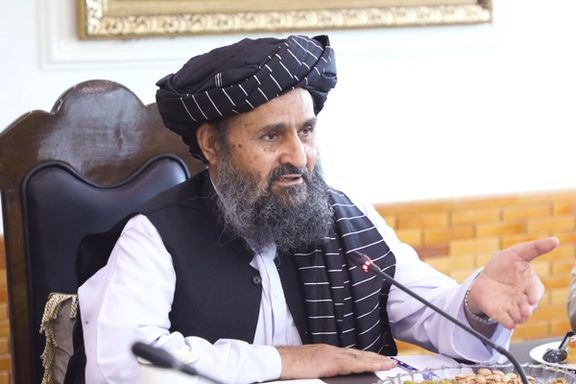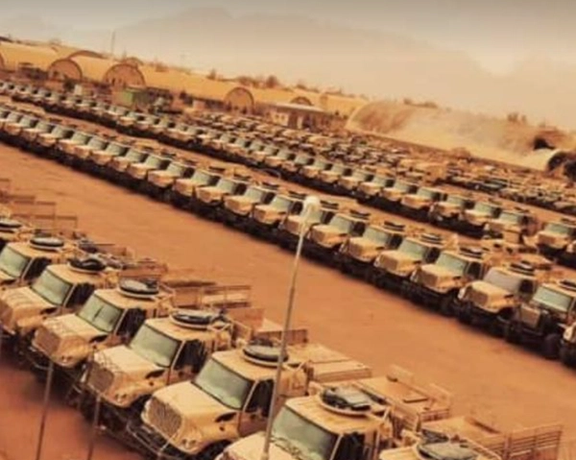His claims are nothing, but falsehoods attempting to whitewash the actions of the Taliban. This piece aims to expose the contradictions and deceptions in his statements.
First, Muttaqi asserts that under the Taliban regime, "the security situation has improved significantly. Violence levels have dropped sharply over the past 18 months and continue to reach new lows, despite doomsday predictions from critics of the new government in Kabul”. He cites this part with another article written for the same platform by Sultan Barakat, an individual with known connections to the Taliban and based in Qatar. However, there are countless reports by international human rights organisations, including a UN report on the mass killing of prisoners of war in Panjshir, mass detention of civilians in Panjshir and other northern regions, continued targeted killings of former government ANDSF forces, and forced evictions in the north and central parts of the country by the Taliban. Claiming that violence has decreased and security has improved is a foolish assertion. Furthermore, in the context of security, let's not forget the continuing attacks by ISKP and daily cases of kidnapping by armed men in Kabul and other major cities, which has become a significant problem.
Secondly, he brags about general amnesty and said, "While gaining control of the entire country, we took steps to weaken the possibility of a renewed war by addressing the concerns of Afghans and adopting the humane Islamic message of general amnesty and brotherhood." He makes this claim even as there are hundreds of cases of arbitrary arrests, torture, and killings of former government employees and ANDSF forces, as well as Panjshiri Tajik civilians who are targeted by the Taliban, simply because of armed resistance against the Taliban in Panjshir province. There are daily reports of the detention of individuals with these backgrounds. According to a report by The New York Times, from August 2021 to April 2022 alone, the Taliban extrajudicially executed nearly 500 people. Most of those killed were members of the ANDSF and government officials of the Afghan previous government. This number has tripled since then as daily targeted killings continue. The rise of targeted killings was also mentioned in a recent UN report.
Thirdly, he claims that the war has ended, which is not true. There is an ongoing resistance against the Taliban, led by several anti-Taliban groups in Afghanistan, particularly in Panjshir province, Andarab, and other northern regions, which Taliban is desperately trying to hide. Last year, the resistance in Panjshir challenged the Taliban significantly, to the extent that Muttaqi himself went to Iran to negotiate with the National Resistance Front (NRF) leadership, an anti-Taliban movement. He met with the leader of NRF, but no agreement was reached, which resulted in further violence in Panjshir in the summer of 2022.
Fourthly, he said, "Afghanistan is being administered by an independent and united government." The extent of the regime's independence from Pakistan can be illustrated by the fact that the ISI director traveled to Afghanistan just a few days after the Taliban came to power to build the Taliban cabinet. Through this action alone, it is clear how independent they are, as even the Taliban regime's cabinet had been established by the ISI director.
The unity he claims is a complete falsehood. From an ethnic perspective, the Taliban regime is composed of 90 percent Pashtuns, while Pashtuns only make up about 40 percent of Afghanistan's population. Only 10 percent of the cabinet has been assigned to non-Pashtun ethnic groups. From a class perspective, their regime consists entirely of mullahs, and individuals other than mullahs, have no place in the Taliban regime. In terms of unity among the Taliban themselves, the group's members are not united, as different factions clash over trivial matters daily.
In the article, he also said that the unity and cohesion of Afghan society are stronger than ever before, and every citizen of the country is an inseparable part of the collective whole. These are empty words as not a single member of the group believes in what is mentioned here. As noted above, the group has not only sidelined non-Pashtun ethnic groups from the government structure and held power hostage, but it also perpetuates forced evictions of ethnic Tajiks, Uzbeks, and Hazaras from their ancestral lands, giving these lands to Pashtun nomads related to the Taliban. This suggests something else: the Taliban and those related to them are an inseparable part of a violent, corrupt structure pushing an ethnic cleansing agenda.
Next, he claims that they don't believe in imposing the majority's will on a minority. I take this statement as a joke, coming from the foreign minister of a regime that consists of only a few men with medieval and violent mindsets, intent on dragging everyone back to a time long past.
Sixth, he claims, "Taliban leaders believe in dialogue and an exchange of ideas”. Again, this is a joke! The Taliban's claim to believe in dialogue only extends to the point where it serves their agenda; when it comes to the interests of the other side, they don't care. Take the Doha agreement as an example. Not a single clause of that agreement has been respected by the Taliban. If this group truly believed in dialogue, they would have agreed to negotiate with the previous government of Afghanistan and reached a peace deal. However, despite international community pressure, they chose to overthrow the previous government through violence and destroy all the achievements gained in the past 22 years since 2001. They are not even agreeable to dialogue with the people of Afghanistan now that they are in power. They force everything on people without caring about what the people want.
Seventh, while shamefully ignoring the banning of girls and women from education and work, he argues that the international community should establish political and economic relations with the Taliban, while respecting Afghanistan's internal affairs. He threatens that weakening the Taliban regime will usher in new problems.
Essentially, he is saying that no matter what they do inside Afghanistan, including banning women and girls from every sphere of society, the international community should engage with them. He also mentions that the primary cause of the ongoing economic crisis is the imposition of sanctions and banking restrictions by the United States, which hinders and delays their efforts to address the humanitarian crisis. At the same time, international NGOs have been calling on the Taliban for months to allow women back to work because the lack of women is affecting the delivery of humanitarian aid, but this doesn't matter to the Taliban.
Eighth, Muttaqi claims that under the Taliban regime, Afghanistan is not a threat to any other country. This assertion has been made despite the active presence of multiple foreign terrorist groups operating within Afghanistan, including Al Qaeda and its many factions that are working to undermine Central Asian countries. The killing of Al Zawahiri, the leader of Al Qaeda, last year in Kabul city, just a few miles away from the Afghanistan Presidential Palace, speaks volumes about the Taliban's commitment to not allowing foreign global terrorists to operate within Afghanistan. It is clear that the Taliban's promises on this front are far from being fulfilled, and the international community must remain cautious and alert to the potential threats emanating from the current regime in Afghanistan.
In conclusion, Amir Khan Muttaqi's op-ed is filled with lies and misinformation, serving only as an attempt to whitewash the Taliban's actions and present a false image to the international community. The piece shamelessly relies on numerous falsehoods to bolster the Taliban's image while disregarding the harsh realities of their violent and oppressive regime. The international community must remain vigilant and not be deceived by such attempts to distort the truth.






